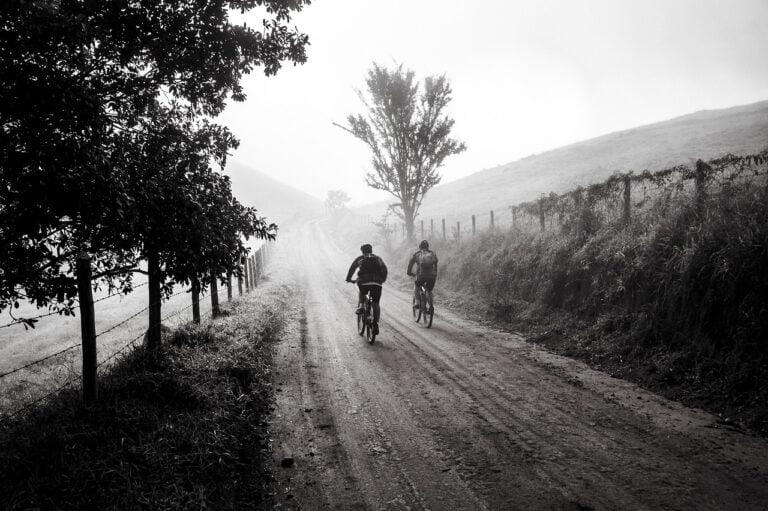Does Backpacking Make You Stronger?
Backpacking is a potent catalyst for building all-inclusive strength, encompassing physical robustness, mental toughness, cardiovascular endurance, flexibility, and confidence. By carrying a heavy backpack, adventurers engage their legs, core, and upper body, adapting and growing muscles to tackle more challenging terrain and longer distances. The trail's physical demands forge mental toughness, enabling backpackers to push past fatigue, fear, and uncertainty. As they navigate obstacles, they develop coping mechanisms, adaptability, and resilience, translating to other areas of life. With each step, backpackers become stronger, more resilient, and capable – and their journey is only just beginning.
Building Physical Strength Through Backpacking
Building Physical Strength Through Backpacking
Carrying a heavy backpack over varied terrain and distances regularly strengthens the muscles of the legs, core, and upper body, ultimately transforming backpackers into more resilient and capable adventurers. The weight and resistance of the pack engage the quadriceps, hamstrings, and glutes, building power and endurance in the legs. The core muscles, including the abdominals and obliques, are also activated to maintain balance and stability. Additionally, the upper body, including the shoulders, back, and arms, are strengthened as they work together to distribute the weight of the pack. Through consistent backpacking, these muscles adapt and grow, enabling backpackers to tackle more challenging terrain and longer distances with confidence and ease.
Mental Toughness on the Trail
Tackling the physical demands of backpacking also forges mental toughness, as backpackers learn to push past fatigue, fear, and uncertainty to reach their destinations. The trail presents numerous challenges, from inclement weather to treacherous terrain, that test a backpacker's resolve. As they navigate these obstacles, they develop coping mechanisms, adaptability, and resilience. Mental toughness is built through the cumulative experience of overcoming daily challenges, making backpackers more confident and self-assured. This mental fortitude translates to other areas of life, enabling individuals to tackle complex problems and persevere through adversity. By pushing past their comfort zones, backpackers cultivate a strong mental foundation that serves them well both on and off the trail.
Cardiovascular Endurance and Backpacking
As backpackers ascend mountainous trails and traverse rugged landscapes, their cardiovascular systems undergo a transformative process, adapting to the relentless demands of carrying heavy packs over extended distances. This transformation is marked by significant improvements in cardiovascular endurance, enabling backpackers to tackle increasingly challenging terrain with greater ease and efficiency.
The benefits of backpacking on cardiovascular endurance are multifaceted:
- Increased cardiac output: Backpacking strengthens the heart, allowing it to pump more blood with each beat, thereby increasing oxygen delivery to the muscles.
- Enhanced aerobic capacity: Regular backpacking improves the body's ability to utilize oxygen, delaying the onset of fatigue and exhaustion.
- Improved vasodilation: Backpacking increases blood flow to the muscles, reducing blood pressure and enhancing overall cardiovascular health.
- Increased mitochondrial density: Backpacking stimulates the growth of mitochondria, the energy-producing structures within cells, allowing for more efficient energy production.
Backpacking's Impact on Flexibility
On average, backpackers can expect to increase their range of motion by up to 20% after just a few weeks of regular backpacking, as the repetitive strain of carrying a heavy pack stimulates adaptative changes in the musculoskeletal system. This increased flexibility is particularly noticeable in the shoulders, hips, and knees, which are primary load-bearing joints. As the body adapts to the demands of backpacking, connective tissues such as tendons and ligaments become stronger and more resilient, allowing for greater mobility and range of motion. In addition, regular backpacking helps to improve posture, reduce muscle imbalances, and augment overall joint health, making it an effective way to boost flexibility and overall physical fitness. Moreover, regular backpacking also strengthens the core muscles, promotes balance and coordination, and optimizes overall physical function.
Overcoming Fears and Building Confidence
Backpacking's physical challenges also yield profound psychological benefits, as the experience of carrying a heavy pack through rugged terrain and unpredictable weather conditions helps build resilience, self-reliance, and confidence. As you navigate unfamiliar landscapes, you'll confront and overcome fears, developing a sense of self-assurance that extends far beyond the trail.
Here are four ways backpacking builds confidence:
- Stepping out of your comfort zone: Backpacking forces you to adapt to new situations, building confidence in your ability to handle the unknown.
- Developing problem-solving skills: When faced with challenges on the trail, you'll learn to think critically and creatively, boosting your confidence in your decision-making abilities.
- Cultivating self-reliance: As you learn to rely on yourself to navigate and overcome obstacles, you'll develop a deeper sense of trust in your abilities.
- Achieving small victories: The sense of accomplishment that comes with completing a challenging hike or reaching a scenic summit will leave you feeling empowered and confident.



